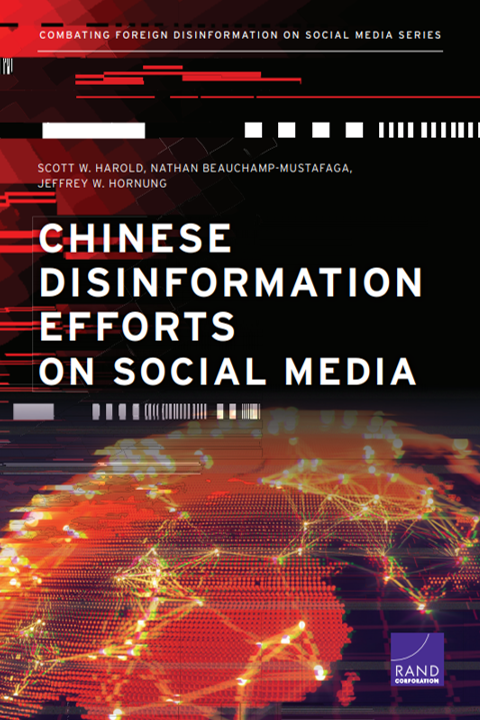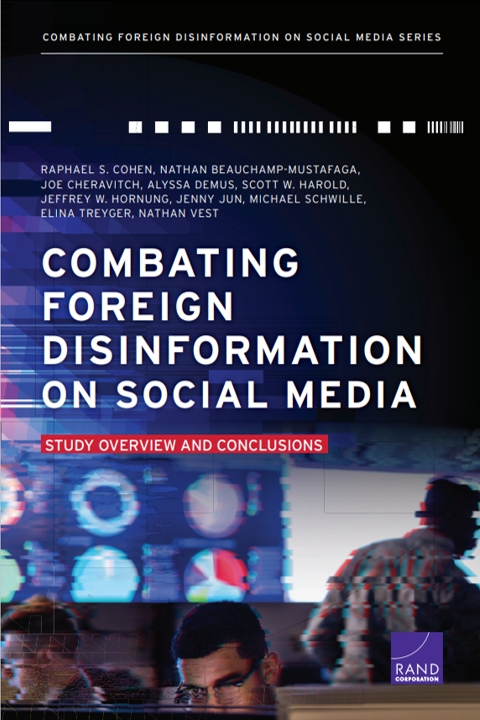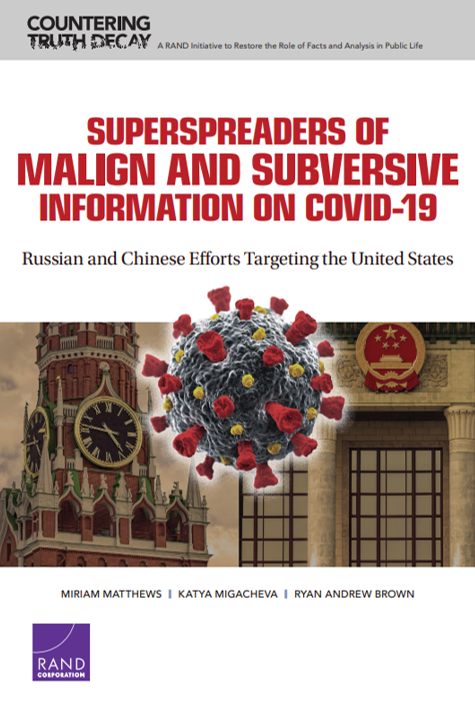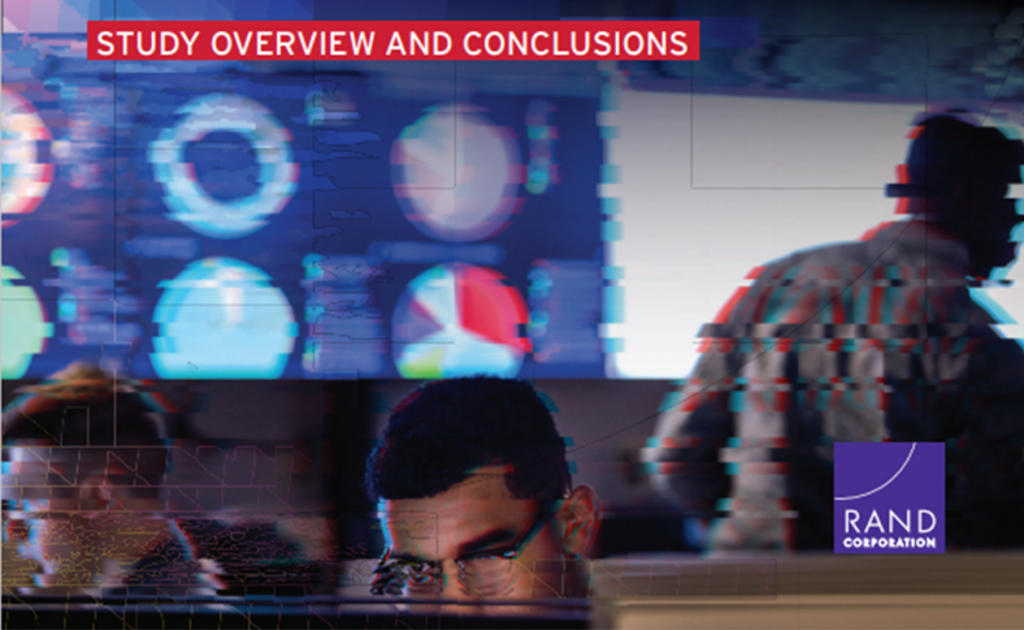New RAND Studies Tackle Foreign Disinformation in the United States
Between 19 and 29 July, RAND published three reports focusing on foreign disinformation campaigns. Two of these were focused on social media with one report focusing on Chinese social media disinformation campaigns and another on combatting foreign social media disinformation. The third focused on Russian and Chinese attempts to spread Covid-19-related disinformation. The first two of these reports were funded with US Air Force money while the third drew its funding from more general sources.

The first of the reports found that the People’s Liberation Army (PLA) is consistently upgrading its information warfare capabilities but few substantial disinformation campaigns have so far been carried out against the United States and its allies (with the exception of Taiwan). Nevertheless, China is likely to step up efforts against the US in times of crisis or conflict. Chinese-language social media like WeChat, which the PRC controls, is a key avenue for CCP propaganda and China will likely attempt to reach out to the Chinese diaspora, especially Chinese-American military officers, in times of war. Chinese disinformation meanwhile is likely to focus on points which are hard to comprehensively disprove “either because doing so would require revealing classified information or because it is impossible to disprove a negative”. The final RAND recommendations, besides just focusing on generally countering and raising awareness of social media disinformation among the public, military and allies, also call for the US government establishing a presence on Chinese-language social media and a focus on providing Chinese and Taiwanese-American military personnel with “resources to identify and defeat Chinese disinformation operations that they might be exposed to.”.

The more general report on social media disinformation largely made the same broad points with the addition of shedding light on industry and non-governmental efforts to counter disinformation. It made three main recommendations:
- “The USAF, in general, and Air Force Special Operations Command, in particular, should expand their information operations capabilities and responsibilities.”
- “The joint force should know the information environment and look beyond U.S. platforms. It should also train for disinformation, focus on key demographics, minimize widespread bans on smart phone and social media use, increase transparency, enforce message discipline, and conduct a Department of Defense–wide review of the information operations force.”
- “The U.S. government should publish a counter-disinformation strategy, leverage civil society groups and industry without outsourcing the counter-disinformation fight, avoid bans on social networks, balance counter-disinformation efforts with a commitment to freedom of speech, and carefully weigh risks while focusing offensive influence efforts on truthful information.”

Finally, the report on foreign Covid-19-related disinformation efforts found that both China and Russia had been focused on boosting conspiracy theories, emphasizing the weak points of the American pandemic response and had utilized a broad range of media types to achieve their goals. Significant differences did exist, however, with Russia being more focused on destabilizing the US while China attempted to improve its global image. Another key difference was Russia’s wide target audience, best exemplified by Russian-government-linked “Sputnik” and “RT”; the first targets a left-wing audience while the second on a right-wing one. It was also found that Russian and Chinese efforts may sometimes, albeit in a limited, opportunistic manner, work to mutually boost each other.
The three reports, in order of mention, are available here, here and here.

